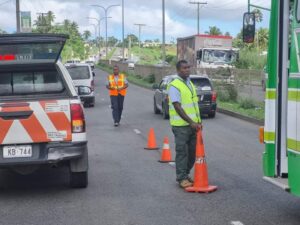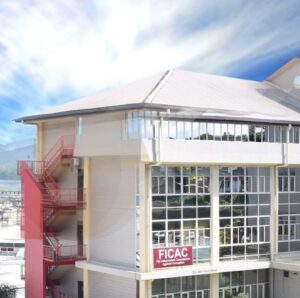Five of Fiji’s Political Parties disagreed with election authorities over proposed amendments to three electoral laws with the former claiming it will not lead to a free, fair and transparent electoral process or 2022 elections that the latter holds it out to be, describing it as unfair, draconian and punitive.
The five opposition political parties – Freedom Alliance Party, SODELPA, National Federation Party, Fiji Labour Party, and Unity Fiji presented their submission before the Parliamentary Committee on Justice, Law and Human Rights late last week, with four of the five commending a few of the 56 proposed changes, offered alternatives for those they opposed and further suggested amendments to other sections of the principal acts.
The three bills currently being reviewed by the committee Bill 50 of 2020 – bill to amend the Electoral Act 2014, Bill 51 of 2020 – Bill to amend the Electoral (Registration of Voters) Act 2012 and Bill 52 of 2020 – Bill to amend the Political Parties Act 2013.
In their submissions, the Electoral Commission and Supervisor of Elections expressed their support for the proposed changes, recommending that they be enacted.
In presenting their submission EC Chair Suresh Chandra said the propose changes would “strengthen the electoral system …[and] enhance the transparency in election management.” SOE Mohammed Saneem said “the amendments introduced …the settling down of laws that are there making it more mature, functional and with greater coverage of the processes in order to ensure there is legitimacy to the activities of the FEO.”
NFP rejected all 56 changes outright and in their submission outlined “flaws” in the amendments saying that they do not address electoral process issues that arised in the 2014 and 2018 elections.
“The amendments do not bring about electoral integrity. It is easy to label ant process free and fair. But we noticed lack of transparency and different interpretation of rules in the last two elections,” NFP Leader Professor Biman Prasad said.
Professor Biman questioned the rationale of the amendments, insisting that the establishment of a special parliamentary committee to review electoral process that the committee had recommended following their review of the 2014 Elections Reports by the EC and the Multinational Observer Group was the best way forward.
MOG recommendations that NFP believes were important and should be considered include “empowering the EC with independent legal advice instead of solely relying on the Solicitor General, provision of symbols on ballot papers and not only in candidates’ booklets, freeing up the media, making observation of elections less restrictive and removing draconian provisions in the political parties act.”
“Surely any government that believes in transparency, accountability, good governance and absolute independence of institutions, would have embraced these recommendations.
“This is why the bills before the committee are premature, draconian, and catalyst for further entrenchment of power in to the hands of a few with duplication of roles such as that of the Supervisor and Registrar of Political Parties.”
In their 17-page submission NFP further outlined the 62 proposed changes and against each provide their comments and/or alternatives.
SODELPA Deputy Leader Filimone Vosarogo expressed the same sentiments regarding the bills saying that changes to the legislations governing elections should ensure citizens participate in regular elections that are fair, accessible, not burdensome or rigid.
FLP leader Mahendra Chaudhary also expressed concerns that only five of MOG observers’ recommendations were considered in the proposed changes to the electoral laws to address “a lack of trust in Fiji’s electoral processes in some quarters.”
Unity Fiji leader Savenaca Narube said many of the proposed amendments lacked principle and logic.
“The explanatory notes to the Bills do not reveal these principles. We, therefore, have to look behind the amendments to ascertain their underlying motivation.”
Narube also expressed concern over the amendments that “give yet more power to the Commission and the SoE to arbitrate, to judge and to make decisions that cannot be challenged in a court of law”, describing it as ”extremely dangerous” and “muzzling the voice of political parties.”
FAP leader Jagath Karunaratne also expressed reservations over the same provision, adding that electoral laws should ensure free, fair and a transparent electoral process.
One of the amendments that the majority of the parties’ welcomed was clause eight (8) of Bill 50 which amends section 36 of the Electoral Act 2014, allowing the National Candidates List to contain the party name, the party symbol or any other information as approved by the SOE. NFP was of the view that the EC should have some say in the matter as well.
Submissions on the three bills continue this week during which the committee will also be heading out to communities between Sigatoka and Wainbuka along the Kings Road.









